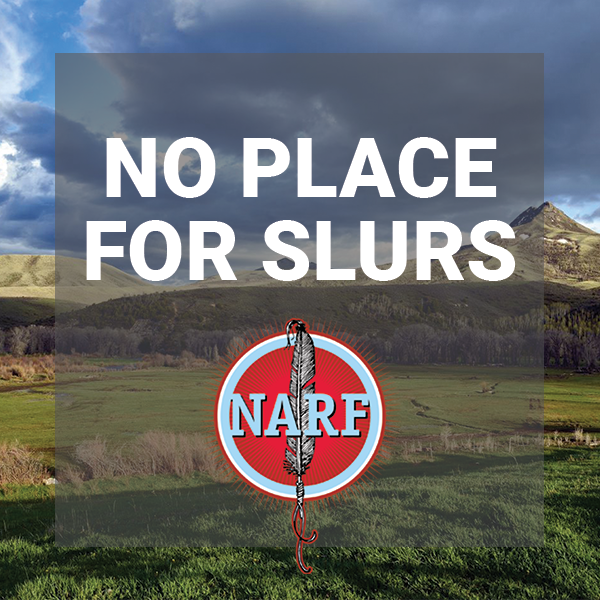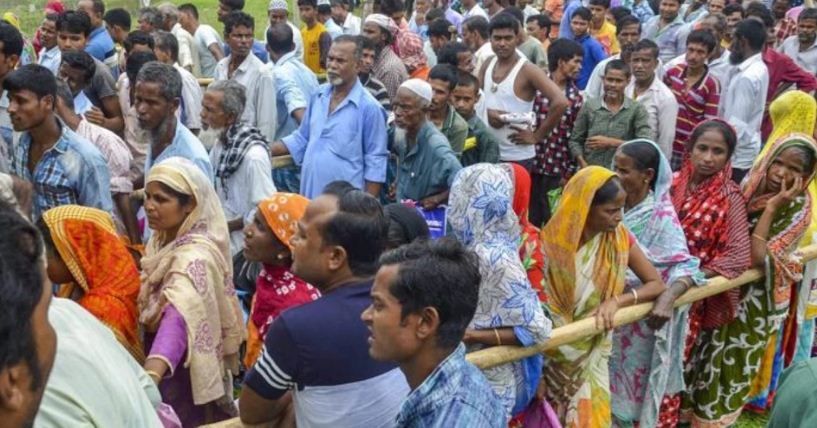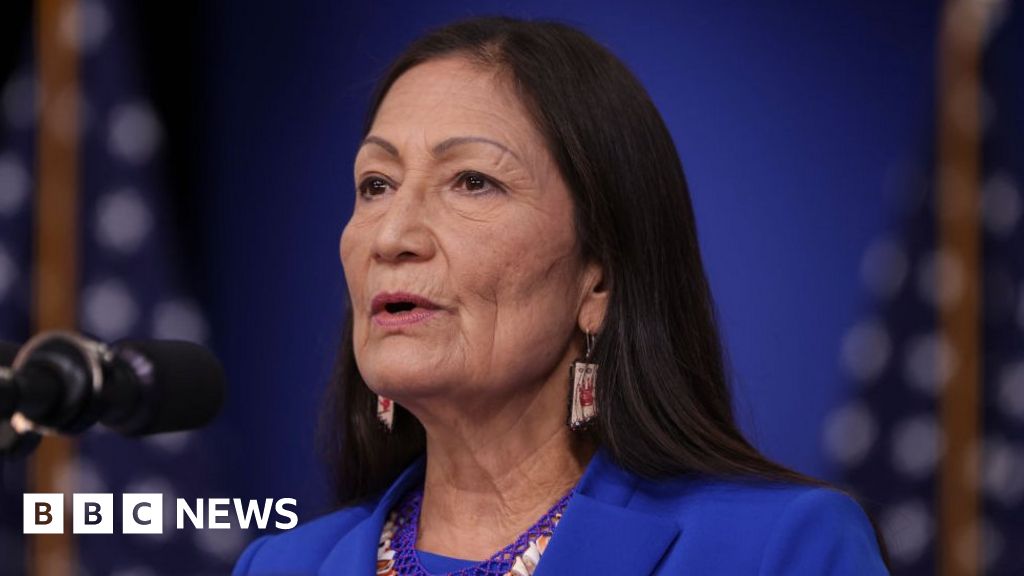🤖 AI-Generated Content
This content has been created using artificial intelligence. While we strive for accuracy, please verify important information independently.
It is, in some respects, quite important to talk about certain words that carry a great deal of hurt. These are the words people use to put others down, often because of their background or who they are. Our collective experience shows that language has a powerful way of shaping how we see the world, and how we treat one another, too.
When we look at specific terms that aim to diminish groups of people, particularly those meant for Indian people, we find a complex web of historical pain and ongoing challenges. This conversation is not about making anyone feel bad, but rather about bringing light to the deep-seated prejudice that can hide within the words we use, or hear, every day.
This discussion really aims to help us all grasp the influence these words hold, how they came to be, and why it's so important to communicate with respect and kindness. It's about building a common ground of consideration, you know, for everyone.
- Russian Lathe Incident
- Nisha Guragain Viral Mms Video
- Telegram Wasmo Somali
- Somali Telegram Link
- Yailin La Más Viral Erome
Table of Contents
- What are these words that hurt?
- Where do we find lists of such language?
- Why is this language so damaging?
- Can understanding help stop the hurt?
What are these words that hurt?
Certain words or phrases are, in fact, quite harmful. These are often called racial epithets, or more simply, slurs. They are expressions that speak about members of different racial and ethnic groups in a way that is meant to put them down. You know, these are not just ordinary words; they carry a sting, a clear intent to cause upset. They are, in a way, loaded with negative feelings and ideas about people based solely on their group identity.
A slur, you see, represents language that shows bias, meaning it holds a prejudiced view. It's language that is truly offensive toward a person or a whole group. This offense comes about because of someone's identity, which could be their race, their family background, their gender, who they are attracted to, whether they have a disability, or even their social standing. It is, in fact, a form of communication that seeks to diminish someone just for being who they are. So, when people talk about reporting on slurs, they are often dealing with language that has this hurtful intent.
The use of slurring is, basically, a kind of hateful speech. Its purpose is to bring harm to individuals, simply because they belong to a certain group. It does more than just cause a feeling of being offended; it also plays a part in creating conditions of unfairness and even oppression. This kind of language can make people feel less valued, less human, which is a rather serious matter. We can, in fact, look into the influence of these words in how we speak, considering their past use, and seeing why it matters to encourage a sense of belonging through thoughtful and respectful conversations.
How do these specific slurs for Indians show up?
When we think about slurs for Indians, we are really talking about particular words or expressions. These are designed to target a certain racial or ethnic group, in this case, Indian people. They are, quite often, used within a context of unfair judgment, and their main aim is to make a person feel small or to cause them insult. It's not just about a casual word choice; it's about a deliberate act of belittling someone based on their heritage. We can, in fact, explore these specific Indian slurs by using a database that lists the words most often used against Indian people.
The "My text" source mentions, rather startlingly, "Racial slurs for the whole family, impress your friends with your vast knowledge of hate!" This phrase, as it stands, seems to highlight a disturbing perspective or a satirical take on the availability of such terms. It suggests, in a way, that there might be resources or collections that categorize these words, perhaps even presenting them in a manner that is unsettling or ironic. The intent behind such a statement, as it appears, is to draw attention to the existence and perhaps the casual, yet deeply harmful, spread of these terms. It's, you know, a very stark way to put it.
There are also terms that are considered casteist slurs. These are words that, actually, get thrown around quite often in everyday conversations. Yet, they have a really deep influence on how groups of people interact in society. Their use can lead to serious consequences, like groups refusing to participate with others, or people being kept apart, and even unfair systems that last a long time. These words, in short, contribute to significant societal divisions. They are not just isolated incidents of bad language; they are part of a larger pattern that affects many lives.
Where do we find lists of such language?
There are, you know, databases that collect these sorts of words. For instance, you can search a database that contains a large number of slurs, around 2655 of them, and also discover where they came from. This suggests a systematic effort to record and categorize these offensive terms, providing a resource for those who want to study or understand the breadth of such language. It's a way, perhaps, to see the sheer volume of words that have been created and used to cause harm. So, it's not just a few isolated terms; there's a considerable collection out there.
When we look at these collections, we find various lists of terms that are meant to put people down. These include lists of ethnic slurs, which are often organized by the specific ethnic group they target. There are also lists of common words that have come from the names of ethnic groups, and even lists of terms that are used to offend people based on their religious beliefs. This means that the problem of offensive language is, in fact, quite broad, touching upon different aspects of a person's identity. It shows how deeply ingrained prejudice can become within our vocabulary, too.
The source mentions that English has terms specifically meant to offend certain ethnic groups. It also notes that there are 200 pages within a certain category that contain such terms, out of a total of 668 pages. This gives us a sense of the sheer volume of these words. It indicates that the creation and use of language to demean specific groups is not a small matter, but rather a rather extensive part of our linguistic history. It's almost as if there's a whole library dedicated to these hurtful expressions, which is a thought that is, in a way, quite sobering.
What kinds of terms are on these lists, really?
The lists include many different kinds of words. Some of these are direct terms that are used to refer to members of racial and ethnic groups in a way that is clearly meant to be insulting. These are, basically, the words that come to mind when you think of someone being put down because of their background. The source also points out that all forms of racial defamation, including slurs, are part of this discussion. It's about any language that damages a person's good name or reputation based on their race. So, it's a broad category that covers many hurtful expressions, too.
Specific examples of offending words are given, such as "squaw" and "brave." These are terms that, when used in certain contexts, carry a history of disrespect. Other words like "chief," "tribe," and "nation," along with "primitive," are also mentioned as potentially offensive. While some of these words might seem neutral on their own, their inclusion here suggests that their usage, particularly when directed at Native American or Indigenous peoples, can be deeply problematic and disrespectful. It's a matter of how these words are applied and the historical weight they carry, you know.
The discussion also brings up the idea of "original slurs" as a humorous look at the various terms used to describe Indigenous people in North America. This suggests that some efforts are made to confront these terms through creative means, perhaps to lessen their power or to draw attention to their absurdity. It's a different approach to dealing with the existence of such hurtful language. For the past year, it seems, young people from an urban society have been involved in this kind of exploration, which is, in a way, a very interesting development.
Why is this language so damaging?
Racial slurs are, quite simply, specific words or expressions that are aimed at a particular racial or ethnic group. They are, almost always, used in a way that shows prejudice, and their purpose is to make a person feel small or to insult them. This kind of language doesn't just pass by; it leaves a mark. It's designed to chip away at someone's sense of worth, to make them feel like they don't belong or that they are somehow less. So, the damage comes from the intentional act of demeaning another human being through words, which is a very serious matter.
The influence of slurs in language is, in fact, quite profound. We can explore their historical background and see how they have been used over time to maintain power imbalances. Understanding this is quite important for encouraging communication that is respectful and inclusive. When these words are used, they don't just affect the person they are aimed at; they can also shape the broader social environment, making it less welcoming and safe for everyone. It's a reminder that words have real weight and can create lasting harm, you know.
The devastating campaign of forced relocation and, in some cases, genocide waged against Native Americans becomes even more insulting when sports teams, which are almost entirely run by white people, use names or symbols that are connected to these groups. This shows how language and imagery can continue to perpetuate harm, even long after historical injustices. It's a clear example of how words and symbols can be used in a way that disrespects a painful past and ongoing struggles. The fact that such practices continue is, in a way, quite disheartening.
What happens when slurs for Indians are used in everyday talk?
When casteist slurs are used frequently in daily conversation, they have a deep effect on how people interact in society. These words can lead to significant social issues, like groups refusing to engage with each other, people being kept separate, and unfair systems that are built into society. It's not just about a single word being said; it's about the cumulative effect of these words creating barriers and maintaining divisions. This kind of language, you know, really shapes the social landscape in negative ways.
A recent study showed that one out of every two Indian Americans reported experiencing discrimination in the United States within the last year. This finding is, in fact, quite telling. The report also reveals a broader pattern of such experiences. This suggests that the use of slurs and other forms of biased language is not just an abstract concept; it translates into real-world experiences of unfair treatment and prejudice for many people. It's a tangible outcome of how these words influence perceptions and actions, you know, in a very direct way.
The casual use of these terms, even if someone doesn't mean to cause harm, can still have a significant impact. It normalizes language that is rooted in prejudice, making it seem acceptable. This can, in turn, make it easier for more overt forms of discrimination to occur. So, the seemingly small acts of using such words can contribute to a much larger problem of systemic unfairness. It's, basically, a ripple effect that starts with a word and spreads to affect many aspects of life.
Can understanding help stop the hurt?
This article, in a way, goes deep into a full list of racial slurs. The aim is not to keep the harm going, but rather to shed light on how deep linguistic prejudice can run. It's about helping to create a better understanding and encouraging a sense of community. By looking closely at these words, we can see how they work and why they cause so much pain. This knowledge, it is hoped, can then be used to build a more respectful environment for everyone. It's about learning from the past to shape a better present and future, you know.
Understanding the impact of slurs in language, their historical background, and the importance of encouraging inclusivity through thoughtful and respectful communication is, in fact, quite important. When we truly grasp how these words have been used to oppress and belittle, we can make more conscious choices about the language we use and accept. It's about recognizing the power of words to either build up or tear down, and choosing the former. So, this kind of awareness is a really big step towards creating a more just world.
The fact that racial slurs cause oppression, in addition to simply offending, is a key point. This means that the words themselves are part of a system that keeps certain groups down. They contribute to a feeling of powerlessness and can limit opportunities for those who are targeted. So, it's not just about hurt feelings; it's about a broader social injustice that these words help to maintain. Exploring this connection helps us see the full weight of what these terms truly mean, you know, in a very practical sense.
What was done about sports teams using slurs for Indians?
It was back in 2020 when the American Indian College Fund, along with groups that speak up for Native people and their supporters across the nation, came together. They made a demand that sports teams, from the grade school level up, change their names or mascots that were offensive. This effort shows a collective push to address the historical and ongoing disrespect embedded in certain team names and imagery. It's a clear example of people standing up and saying that these practices are not acceptable anymore, which is, in a way, a very powerful movement.
The issue of sports teams using terms that are hurtful to Native Americans is a long-standing one. The source mentions that the devastating campaign of forced relocation and genocide against Native Americans is made even more insulting when sports teams, run almost exclusively by white people, use names or mascots that evoke these painful histories. This highlights the deep disconnect and lack of sensitivity that can exist when one group appropriates symbols or names from another, especially when that group has suffered immense historical trauma. It’s a very stark reminder of how cultural insensitivity can persist, too.
This kind of collective action, like the demand made by the American Indian College Fund and its allies, is a crucial part of addressing the broader issue of harmful language. It moves beyond simply identifying slurs to actively working towards their removal from public spaces and institutions. It demonstrates that awareness is not enough; there needs to be tangible action to bring about change. So, these efforts are, in fact, a very important step towards fostering greater respect and understanding within society, you know, for all people.
Additional Resources
Visual Content



Disclaimer: This content was generated using AI technology. While every effort has been made to ensure accuracy, we recommend consulting multiple sources for critical decisions or research purposes.
